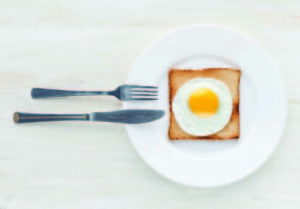In the Spotlight
Eggs: The returning champion of breakfast
July, 2017

Eggs have been with us for a long time, and despite the decades-long health scares associated with them, they’ve come back into our breakfasts and into our lives. With the recent popularity of high-protein and naturalistic diets, many of us find ourselves eating them on a daily basis. They’re healthy, they’re cheap and they’re incredibly simple to cook. Welcome back, eggs. We’ve missed you.
A Storied Past
Humans have been eating eggs for longer than any history book can remember, and for good reason. Eggs, whether they come from chickens, ostriches or songbirds, were the ultimate health snack for early hunters and foragers. They’re easy to come by, nutrient rich, and can be eaten in a huge number of ways. In fact, the desire for eggs was so strong for early humans that chickens became one of the first animals to be domesticated. Egg farming began in South Asia about 10,000 years ago, and over the centuries, the practice has spread to every corner of the globe.
A Natural Super-food
Eggs are among the highest protein foods available, with a count of only about 75 calories per egg. This fact alone is what made them such a super-food for early humans, and it’s what continues to make them such a popular choice today. But the high-protein content isn’t the only value they have to offer. Eggs are a good source of iron and 13 essential vitamins, all of which you should be consuming daily.
Heart Disease Myths
The debate over the true health value of eggs has been raging among nutritionists for decades, and it even continues today. It all started in the 1950s, when American dietary researchers found some very sparse connections between high-cholesterol eggs and heart disease. The idea of cholesterol wasn’t understood very well at the time, and by linking these two ideas, researchers inadvertently launched an anti-egg craze that would last for decades. These days, nutritionists understand that there are different types of cholesterol and that we need some in our diets to stay healthy. Eating eggs is one of the best ways to get that “good cholesterol” into your diet.
How Do You Take Your Eggs?
What is the best way to eat an egg? It depends on what your diet requires. If you’re cutting back on fats, go for poached
or hard-boiled eggs. These methods allow you to get all of those coveted nutrients without all of the fat content that comes in a frying pan. If you’re looking to maximize your protein intake, make sure you avoid soft-boiled or over-easy eggs. Cooking eggs all the way through helps to break down the proteins into a form that our bodies can more easily absorb. If you want to focus on the vitamin content, the opposite holds true. Cooking eggs for too long will break down many vitamins and anti-oxidants, and in those cases a runny yolk is your friend.
A Trendy Breakfast
This year saw the rise of a new fad that is taking social media by storm: The cloud egg. Cloud eggs look a bit like fried eggs, but with an egg-white that looks like a fluffy cloud. How are they made? Separate the egg whites from the yolk and beat the whites into stiff peaks. Then, spread them onto a baking sheet in the shape of a fried egg, make a divot in the middle and place the yolk there. Bake in the oven until crisp, and make sure to post a picture on social media for all your friends to see. t8n
Did You Know?
Egg cartons are a Canadian invention. The first egg carton was created in Smithers, British Columbia, in 1911. Prior to that, eggs were stored and transported in baskets. Breakage was such a common problem that it gave rise to the idiom, “Don’t carry all of your eggs in one basket.”
Fun Fact
The colour of an egg (brown, white or even blue) depends on the breed of the hen that laid it. The colour of the yolk, on the other hand, results from the diet of the chicken. Corn feed results in a darker yolk, while grain feed results in a lighter coloured one.













